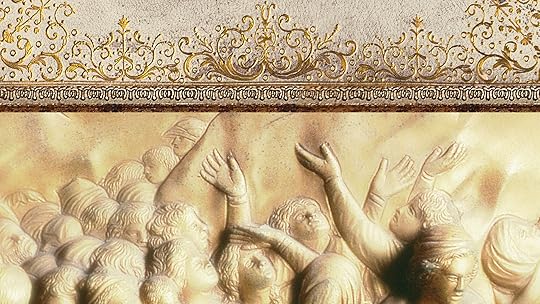R.C. Sproul's Blog, page 52
October 17, 2020
Do All Religions Worship the Same God?

These days, it’s popular to claim that adherents of various religions all worship the same God. To claim otherwise is to be labeled intolerant and promptly silenced. But what does God Himself say in His Word? Our 2020 State of Theology survey shows that many professing Christians are listening more to culture than to Scripture. Conducted in partnership with LifeWay Research, the full results of this survey are now available.
Today, 42 percent of U.S. evangelicals* agree with the following statement: “God accepts the worship of all religions, including Christianity, Judaism, and Islam.” On the contrary, the Bible teaches that “there is one God, and there is one mediator between God and men, the man Christ Jesus” (1 Tim. 2:5). Only worship that is offered through Christ is acceptable in God’s sight.
One of our Teaching Fellows, Dr. Stephen Nichols, recently commented on these disturbing results from the State of Theology survey.
Religious pluralism may be a popular idea in America, but it has damning consequences. No one comes to the Father but through Jesus Christ, who alone is the way, the truth, and the life (John 14:6). Christians must be unyielding in proclaiming the exclusivity of Christ. By God’s grace, we hope the 2020 results from our State of Theology survey will encourage the church to stand firm for the truth of God’s Word.
* Evangelicals were defined by this survey as people who strongly agreed with the following four statements:
The Bible is the highest authority for what I believe.
It is very important for me personally to encourage non-Christians to trust Jesus Christ as their Savior.
Jesus Christ’s death on the cross is the only sacrifice that could remove the penalty of my sin.
Only those who trust in Jesus Christ alone as their Savior receive God’s free gift of eternal salvation.


Who Is Blessed?

When Jesus pronounces the promises of God to His people in the Sermon on the Mount, He reveals what it truly means to be blessed by God. In this brief clip, R.C. Sproul explores how the Beatitudes of Christ turn the platitudes of this world upside down.
Transcript:
Now notice in these Beatitudes that the message that Jesus is giving in this sermon is kind of a topsy-turvy announcement, where Jesus is turning the platitudes of this world upside down. He doesn’t say, “Blessed are those who rejoice,” but He said, “Blessed are those who mourn.” He doesn’t say, “Blessed are the rich,” but, “Blessed are the poor,” the poor in spirit, the poor in heart. Do you remember Isaiah in the Old Testament, when God called Isaiah not only to pronounce the judgment on the people, but also to predict the end of the calamities, the end of the divine visitation of wrath, the time when God would temper His justice with mercy? And so He says to the prophet, “Say unto the people, ‘Comfort ye; comfort ye My people,’ saith the Lord. ‘Speak tenderly to Jerusalem. Say unto her, her warfare is over, for she has received double for her sins.’”
And now this is what Jesus is doing. He is, on this occasion, pronouncing the promise of God to comfort His people. Not to comfort everybody, not to comfort the comfortable, but to comfort the uncomfortable, those who are poor, those who have been to the house of mourning, those people who wear blinders in this world, not to be seduced by the allurements of success and power and fame, but who hunger and thirst after righteousness. And He pronounces His blessing on the pure in heart; and you see, with each one of these pronouncements of divine blessedness, He attaches a promise for the future: “Blessed are those who hunger and thirst; they shall be filled. Blessed are the peacemakers; they shall be called sons of God, children of God. Blessed are those who mourn; they shall be comforted. Blessed are the poor; they shall inherit the kingdom of God.” Do you see how He gives a future promise to each one of these human conditions? And He’s, again, turning the world’s values upside down. Because it’s very difficult for a person to feel blessed when they are poor or to feel blessed when they are mourning, to feel blessed when they are hungry, but particularly difficult is it to feel blessed when you are being reviled, despised, hated, and persecuted.


October 16, 2020
What Are Some Good Arguments for the Apostle Paul's Authority?

Some people claim that the Apostle Paul’s writings bear no authority for Christians today. How should we respond? From one of our Ask Ligonier events, Stephen Nichols shows how Scripture addresses this challenge.
When you have biblical and theological questions, just ask Ligonier.
Read the Transcript


The Instrumental Cause of Justification

The Reformation doctrine of justification is frequently summed up in the slogan sola fide, which means “by faith alone.” The phrase sola fide stands for the teaching that justification is by faith alone.
The Roman Catholic Church, historically, has also taught that justification is by faith. They say that faith is the initial stage of justification. It is the foundation and root of our justification. Rome insists on the necessity of faith for justification. So the fide in sola fide is clearly affirmed by Rome. What is not affirmed by Rome is the sola, because even though faith is the initiation, the foundation, and the root of justification, its mere presence is not enough to effect justification. There must be something besides faith in order for us to be justified—a necessary condition. A necessary condition is something that must be present in order for an effect or consequence to follow, but its presence does not guarantee the result.
For example, under normal circumstances, a necessary condition for fire is the presence of oxygen. But, fortunately for us, the mere presence of oxygen is not enough to cause a fire. If it were, we would catch on fire every time we took a breath of air. So we distinguish between a necessary condition and a sufficient condition. A sufficient condition absolutely guarantees that the result will follow.
Given that distinction, we can see the difference between the Roman Catholic view and the Reformation view of the relationship between faith and justification. In the Roman view, faith is a necessary condition for justification, not a sufficient condition for it. In the Protestant view, faith is not only a necessary condition but also a sufficient condition for justification. That is, when we put our faith and trust in Christ, God will most surely declare us justified in His sight. The Reformation view, which is the biblical view, is that if faith is present, justification is inevitably present as well.
What is unthinkable in the Reformation view is that we could have faith without justification. We cannot have justification without faith, and we cannot have faith without justification. Rome says that we cannot have justification without faith, but we can have faith without justification. We can keep our faith but commit a mortal sin that will destroy the grace of justification, so that we will be damned (without proper penance). But for the Reformers, the mere possession of genuine faith is all that is required in order for us to receive the grace and maintain the state of justification.
The confession says this:
Faith, thus receiving and resting on Christ and his righteousness, is the alone instrument of justification.
An instrument is a tool that is used for a particular purpose. When the framers of the Westminster Confession wrote that faith is the alone instrument of justification, they were aware of the sixteenth-century dispute regarding the instrumental cause of justification. It is necessary to have a clear understanding of this doctrine—the instrumental cause of justification—because it is about how we are saved.
The term instrumental cause goes back in history to the fourth century before Christ, to the philosophy of Aristotle. He was concerned to explain motion and change. In that process, he tried to isolate various causes that contribute to something’s change of state or status. How does that relate to our question here? We, by nature, are not justified. We are unjust, and our status before God is that we deserve his unmitigated wrath. We need a change of our status, from a state of damnation to a state of justification.
Aristotle distinguished four kinds of causes: the formal cause, the efficient cause, the final cause, and the material cause. He did not include the instrumental cause. His four causes, however, formed the basis for the idea of instrumental cause.
He used the illustration of a statue that starts out as a block of stone from the quarry. Aristotle defined the block of stone as the material cause, the stuff out of which something is made. The formal cause is the idea in the sculptor’s mind, or his blueprint or sketch, of the way that he wants the finished product to look. There has to be an idea before there can be a result. The efficient cause is that which brings about the change from stone to statue, and in this case it is the sculptor. He is the one who makes it happen. The final cause is the purpose for which the thing is made, which in this case may be to beautify a garden.
To these four causes, we may add the idea of the instrumental cause, which is the means by which the change takes place. If the sculptor wants to change the block of stone into a statue, he has to chip away at the stone to shape, form, and smooth it. His chisel and his hammer are the instruments, the means by which the change is wrought. In English, we often indicate means with the words by and through.
When the Reformers said that justification is by faith or through faith, they affirmed that the means or the instrument by which we are justified is faith and faith alone. The only instrument that we need, the only tool required to move us from a state of damnation to a state of justification is faith, but faith is not the only thing that we need in order to be justified. We also need Christ in order to be justified. That is, in order to be justified, we need His perfect righteousness and His atonement on the cross. Everything that is required by God to meet His standard of righteousness and justice has been fulfilled objectively in and through the work of Christ. He has done it all. The whole Roman Catholic–Protestant debate on justification is not over the objective work of Christ so much as it is over how we receive the benefits of His work. How is the objective work of Christ subjectively appropriated? The answer that the Reformers gave, based on the teaching of the Apostle Paul, was “in and through, or by and through, faith alone.” But it is not faith alone that saves us. When we say that justification is by faith alone, we are saying that justification is by and through our faith in Christ alone.
The instrumental cause of justification, according to Rome, is baptism and penance. Rome defines these sacraments as the instruments by and through which a person is justified. The difference is between salvation that is accomplished sacerdotally (that is, through the church’s administration of the sacraments) and salvation that is experienced through faith in Christ alone. This is all the difference in the world. The confession says that faith is the only instrument of justification because it is through faith alone that we rest on and receive the righteousness of Christ. The righteousness of Christ, the benefits of His atonement, the objective merit or grounds of our justification, are freely offered to anyone who believes. “The righteous shall live by faith” (Rom.1:17). We are justified not by faith plus works but by faith alone. All that is needed to enter the kingdom of God is faith or trust in the work of Christ alone.
Faith is not the grounds of our justification. The grounds of our justification is the righteousness of Christ, His merit. The Reformers said that the meritorious cause of our justification is the righteousness of Christ alone. The instrumental cause of our justification is faith, but when we say that we are justified by faith alone, we do not mean that faith is a meritorious work that adds anything to the ground of our justification.
What difference does that make practically? There are people who say they believe in justification by faith alone but who rely on their faith as if it were meritorious or a good work that will satisfy the demands of God’s justice. The fact that a person possesses faith adds no merit to his account. It adds infinite merit to his account by imputation, but it is the merit of Christ that is imputed to him. We can receive Christ’s merit only by faith, and there is no merit to that. The only One who can save us is Christ, and the only way we can get access to Him is through faith. We do not rest on anything else in our lives except Christ and His righteousness for our salvation.
This excerpt is adapted from Truths We Confess by R.C. Sproul. In Truths We Confess, now thoroughly revised and available in a single, accessible volume, Dr. Sproul introduces readers to this remarkable confession, explaining its insights and applying them to modern life. Order the hardcover book today.


October 15, 2020
$5 Friday (And More): The Lord's Supper, John Calvin, & The Book of Galatians

It’s time for our weekly $5 Friday sale. This week’s resources include such topics as the Lord's supper, John Calvin, the book of Galatians, church history, the reformation, theology, and more.
Plus, several bonus resources are also available for more than $5. These have been significantly discounted from their original price. This week’s bonus resources include:
The Millenium: December 2013 Tabletalk , Magazine $3 $1
Honor: February 2019 Tabletalk , Magazine $3 $1
Addictions: August 2016 Tabletalk , Magazine $3 $1
Does God Exist? by R.C. Sproul, Paperback book $2 $1
, Paperback book $2 $1
Reformation Truths with Michael Reeves, DVD $38 $12
A Survey of Church History, Part 5 A.D. 1800-1900 with W. Robert Godfrey, DVD $48 $15
No Other Gospel: Paul’s Letter to the Galatians with Derek Thomas, CD $36 $12
The Expository Genius of John Calvin by Steven Lawson, Hardcover Book $16 $8
Sale runs through 12:01 a.m.–11:59 p.m. Friday ET.
View today’s $5 Friday sale items.


New Book by Steven Lawson: Show Me Your Glory

It’s the most important question we can ask: Who is God? The wrong answer could spell our doom, but God has clearly revealed Himself and His majesty in His Word. Just as Moses asked the Lord on the summit of Sinai, we can approach God’s Word with the ultimate request: “Show me Your glory.”
In Show Me Your Glory: Understanding the Majestic Splendor of God, Dr. Steven Lawson takes us to the mountaintop of divine revelation by distilling the Bible’s teaching about God Himself. Each chapter delves into the depths of God’s awesome attributes, teaching that a deeper knowledge of our Creator can lead us into intimate fellowship with and reverent worship of the One who made us for Himself.
“Must reading for a man-centered day!”
—Dr. Michael A.G. Haykin
Chair and professor of church history at The Southern Baptist Theological Seminary
“Dr. Lawson, with a pastor-teacher’s heart and skill, takes us by the hand in this volume and brings us face-to-face with God as He has revealed Himself in the Bible and supremely in His Son, Christ Jesus.”
—Rev. Mark G. Johnston
Minister at Bethel Presbyterian Church, Cardiff, Wales
“Steve Lawson has provided us with a comprehensive survey of the attributes of the God of the Bible. His twenty chapters of roughly six pages each can easily be incorporated into one’s morning devotions, providing his readers with a satisfying diet of biblical insight into the God of whom to know is life eternal (John 17:3).”
—Dr. Terry Johnson
Senior minister at Independent Presbyterian Church, Savannah, GA
Available now from the Ligonier store. Read a sample chapter.
Hardcover for $19.00 $15.20
Dr. Steven J. Lawson is founder and president of OnePassion Ministries. He is a Ligonier Ministries teaching fellow, director of the doctor of ministry program at The Master’s Seminary, and host of the Institute for Expository Preaching. He is author of numerous books, including The Moment of Truth and The Passionate Preaching of Martyn Lloyd-Jones.


The Covenants in Scripture
Here’s an excerpt from The Covenants in Scripture, Robert Rothwell's contribution to the October issue of Tabletalk:
In 2018, a senior pastor in Atlanta created something of a buzz when he said, “Christians need to unhitch the Old Testament from their faith.” Immediately, Bible-loving Christians responded with alarm that a prominent pastor would state, essentially, that the Old Testament is unnecessary for believers. The pastor’s attempts at clarification did not help assuage concerns. Even according to the most charitable reading, he devalues the Old Testament. He may claim it is inspired, but it is difficult to see what that means when he has said there is little divine grace in the Old Testament and that it should not be “the go-to source regarding any behavior in the church.”
Continue reading The Covenants in Scripture, or begin receiving Tabletalk magazine by signing up for a free 3-month trial.
For a limited time, the new TabletalkMagazine.com allows everyone to browse and read the growing library of back issues, including this month’s issue.


October 14, 2020
Not Because of Your Righteousness
God reveals Himself as the One who rescues a people from their sins, not the One who rewards the righteous for their merits. In this brief clip, W. Robert Godfrey reminds us that the people of God are recipients of sovereign mercy beyond all deserving.
Transcript:
Verse 4 of chapter 9 is so important. I think it’s key in a lot of ways to understanding what's going on in Deuteronomy. "Do not say in your heart," Deuteronomy 9:4, "after the LORD your God has thrust the nations out before you, 'It is because of my righteousness that the LORD has brought me in to possess this land,' whereas it is because of the wickedness of these nations that the LORD is driving them out before you. Not because of your righteousness or the uprightness of your heart are you going in to possess their land, but because of the wickedness of these nations the LORD our God is driving them out from before you, that He may confirm the word that the LORD swore unto our fathers, to Abraham, Isaac, and Jacob. Know, therefore, that the LORD your God is not giving you this good land to possess because of your righteousness, for you are a stubborn people." And so, anyone who wants to argue that Israel is inheriting the land because of its righteousness, because of its obedience, because the Lord is rewarding them for their goodness, Moses says, "That's absolutely the opposite of the truth. He's giving you the land despite who you are, despite what you've been, despite what you are going to be. He is rescuing a stubborn people; He is not rewarding a righteous people." And I think we have to keep that in mind when we think about ourselves as well, that we indeed have been the recipients of grace not because we've deserved it, but because of the sovereign mercy of God beyond all deserving. It's the wonder of grace that we possess in Him and through Him.


Semper Reformanda in Context

The phrase ecclesia reformata, semper reformanda (the church reformed, always reforming) has been used so often as to make it a motto or slogan. People have used it to support a surprising array of theological and ecclesiastical programs and purposes. Scholars have traced its origins to a devotional book written by Jodocus van Lodenstein in 1674. Van Lodenstein, no doubt, had no intention of being a phrase-maker or sloganeer. What was his intention, and what did he mean by this phrase?
Van Lodenstein was a minister in the Reformed Church of the United Provinces in what we know today as the Netherlands. This church was born of decades of faithful preaching by ministers—many educated in Geneva—who risked their lives to carry the gospel, first into the French-speaking regions of the Low Countries, and later into the Dutch-speaking regions farther north. Some ministers were martyred for their faith, but they gathered a rich harvest of committed believers. Their message of the need for the reform of the church according to the Bible resonated with many who saw the corruptions of the old church.
Under the rulers Charles V and Philip II, the government of the Low Countries made every effort to suppress the Reformed religion, which was a large part of the reason for the Dutch revolt against their Spanish overlords. This revolt (1568-1648) became known as the Eighty Years' War, giving birth to a new state in the northern part of the Low Countries. In this new state—the Dutch Republic, also known as the United Provinces—the Reformed Church was dominant, receiving government support and becoming the church of the majority of the population by the middle of the seventeenth century.
This church subscribed to the Belgic Confession (1561) and the Heidelberg Catechism (1563), and had an essentially presbyterian form of government. Interference from the Protestant civil authorities of the new state limited the freedom of the Reformed Church, particularly in matters of discipline. That interference, in part, led to a crisis in the church in the early seventeenth century with the rise of Arminianism. That crisis was addressed and settled at the great international synod held in the city of Dordrecht in 1618-19. The Canons of Dort prepared at this synod became another doctrinal authority in the life of the church.
Jodocus van Lodenstein was born into a prominent family in the city of Delft in 1620. He was educated by two of the most distinguished Reformed professors of the day: the scholastic and pietist theologian Gisbertus Voetius of Utrecht and the covenant theologian Johannes Cocceius of Franeker. While being personally friendly with both theologians, he was more influenced by Voetius. Voetius stressed both precise theology and Christian living. Van Lodenstein was called to serve as a pastor in Utrecht, where he ministered from 1653 until his death in 1677. As a pastor, he always encouraged the faithful to disciplined, vital Christianity.
Van Lodenstein was an inheritor of a body clearly and fully reformed according to the Reformed or Calvinistic interpretation of the Bible. The Calvinists often described their vision of the church in three categories: doctrine, worship, and church government. In all three of these areas, the Dutch Reformed Church was thoroughly Calvinistic, similar in most ways to Calvinistic churches throughout the rest of Europe.
No church's life is ever static, however, and van Lodenstein certainly saw some changes in his lifetime. In doctrine, for example, Reformed theologians were developing a covenant theology that would give great insight into both the structure of the unfolding revelation of the Bible and the work of Christ. Most Reformed Christians have seen this as a real theological advance. Van Lodenstein also saw the increasing use of the organ in public worship in the Reformed churches in his time. He knew the debates as to whether this change was a reformation or a deformation in the worship of the church. Are these the kinds of changes that he had in mind when he wrote about a church reformed and always reforming?
The answer to this question is no. Van Lodenstein was not thinking about adjustments and improvements to the church's doctrine, worship, and government. These matters of external reform had been absolutely necessary when the Reformers accomplished them in the sixteenth and early seventeenth centuries. But for Calvinists like van Lodenstein, they had been definitively accomplished and settled. He was not contemplating the value of relatively minor changes. He was not a man of later centuries who believed progress and change were necessary and good in and of themselves. He believed the Bible was clear on the foundations of doctrine, worship, and government, and that the Reformed churches had reformed these things correctly. In this sense, reform was a return to the teaching of the Bible. The Reformers had gotten these things right, and they were settled.
The great concern of ministers like van Lodenstein was not the externals of religion—as absolutely important as they are—but rather the internal side of religion. Van Lodenstein was a Reformed pietist and part of the Dutch Second Reformation. As such, his religious concerns were very similar to those of the English Puritans. They all believed that once the externals of religion had been carefully and faithfully reformed according to the Word of God, the great need was for ministers to lead people in the true religion of the heart. They saw the great danger of their day not as false doctrine or superstition or idolatry, but as formalism. The danger of formalism is that a church member could subscribe to true doctrine, participate in true worship in a biblically regulated church, and yet still not have true faith. As Jesus had warned against the Pharisees of His day, citing the prophet Isaiah, "This people honors me with their lips, but their heart is far from me" (Matt. 15:8).
The part of religion that always needs reforming is the human heart. It is vital religion and true faith that must be constantly cultivated. Formalism, indifferentism, and conformism must all be vigorously opposed by a faithful ministry.
Van Lodenstein and those who stood with him believed that the Canons of Dort presented a vision of true religion like their own. In the battle against Arminianism, one of the great issues had been the doctrine of regeneration. In sixteenth-century Reformed theology, theologians used regeneration as one of several synonyms for sanctification. So, for example, Article 24 of the Belgic Confession could state that we are regenerated by faith. But in the struggle against the Arminians, regeneration took on a more technical meaning, referring to the sovereign work of the Holy Spirit in planting the new life in the soul that is necessary for faith. This new use of regeneration explained how faith was a gift of God, not the work of human free will. But it also explained how Christians were, by the grace of God, able to live a new life, pursuing holiness. The Canons of Dort declared:
When God carries out this good pleasure in his chosen ones, or works true conversion in them, he not only sees to it that the gospel is proclaimed to them outwardly, and enlightens their minds powerfully by the Holy Spirit so that they may rightly understand and discern the things of the Spirit of God, but, by the effective operation of the same regenerating Spirit, he also penetrates into the inmost being of man, opens the closed heart, softens the hard heart, and circumcises the heart that is uncircumcised. He infuses new qualities into the will, making the dead will alive, the evil one good, the unwilling one willing, and the stubborn one compliant; he activates and strengthens the will so that, like a good tree, it may be enabled to produce the fruits of good deeds.
This doctrine of regeneration was used, then, to stress the new principle of life in the Christian and the need for that new life to be lived out. The Christian needed to eschew formalism and live out his faith in the daily struggle against sin, finding rest and hope in the promises and Spirit of God.
So what did van Lodenstein mean by his famous phrase reformed and always reforming? Probably something like this: since we now have a church reformed in the externals of doctrine, worship, and government, let us always be working to ensure that our hearts and lives are being reformed by the Word and Spirit of God. Whatever other meanings may be made of this phrase, this original meaning is well worth pondering and preserving.
This post was originally published in Tabletalk magazine.


October 13, 2020
Announcing Our Dedicated-Language Outreach in Chinese

At this critical time for Christians in China, Ligonier Ministries is launching its dedicated-language outreach with articles in traditional and simplified Chinese and dubbed audio-video content in Mandarin Chinese.
Persecution is on the rise under the heightened surveillance and restrictions of the Chinese Communist Party. Pastors are being imprisoned, churches forcibly closed, and church members evicted from their homes. Using sophisticated facial-recognition technology, it’s estimated that China will soon have one camera for every two citizens. As a result, the government monitors every aspect of people’s daily lives, able to locate most of its citizens in seconds.
Today, after many years of prayer, Ligonier is delighted to commence online outreach to serve Chinese-speaking people around the world. Our Chinese website, zh.Ligonier.org, is a well-stocked virtual library of trustworthy teaching, including articles, free ebooks, and video teaching series by Dr. R.C. Sproul. Two versions of the website are available: one in simplified Chinese script and another in traditional Chinese script.
The video messages are professionally dubbed in Mandarin, with accompanying study guides also translated. The first videos available on the website are Dr. Sproul’s classic series The Holiness of God and Chosen by God. This content will continue to be expanded as additional videos, books, and articles are now being translated for release in the coming months. Videos are also being uploaded to our Chinese YouTube channel.
Our goal is to get trustworthy and timeless resources into the hands of those who want to grow in their knowledge of God and are facing persecution for their faith in Christ. We seek to encourage, equip, and build up Chinese-speaking Christians—not only in China, but also across the globe.
Christians in China are finding creative ways around the Communist government’s internet censorship. They regularly contact Ligonier Ministries, asking us to make more content available to them. Ligonier’s new Chinese website is designed to be as accessible as possible, including download options for video and audio so that the messages can be stored and viewed offline.
The Chinese website is a significant expansion of Ligonier’s expanding international outreach. Designated websites are already available in Arabic, Farsi, French, and Spanish, and others are being developed.
Our president, Chris Larson, recently said:
“It has been our longstanding desire at Ligonier Ministries to serve the persecuted church in China. Reformed theology is a great encouragement to those suffering Christians, equipping them with teaching to help them stand on the rock that is Christ. The Word of God is powerful and accomplishes what the Lord designs (Isa. 55:11). This has an eternal impact on people’s souls, bolstering gospel confidence now and bringing spiritual comfort to the people of God forever. As Ligonier strives to proclaim the holiness of God to as many people as possible, we will not ignore those whose native language is Chinese. In God’s sovereign providence, Mandarin is one of the most strategic languages in the world, spoken by more than a billion people globally. Research predicts that the number of Protestants in China may well overtake those in the United States within the next decade. By God’s grace, we seek to do all we can to help ground Chinese-speaking people in the truth of God’s Word.”
This international gospel outreach is made possible by the prayers and generosity of faithful donors. Thank you for helping to translate, publish, and distribute trustworthy teaching so that more people around the world may be awakened to the glory and grace of our holy God.


R.C. Sproul's Blog
- R.C. Sproul's profile
- 1931 followers





